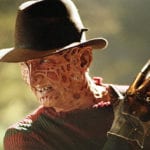 Our World
Our World  Our World
Our World  Crime
Crime 10 Dark Details of the “Bodies in the Barrels” Murders
 Animals
Animals The Animal Kingdom’s 10 Greatest Dance Moves
 Movies and TV
Movies and TV 10 Box Office Bombs That We Should Have Predicted in 2025
 History
History 10 Extreme Laws That Tried to Engineer Society
 History
History 10 “Modern” Problems with Surprising Historical Analogs
 Health
Health 10 Everyday Activities That Secretly Alter Consciousness
 History
History Top 10 Historical Disasters Caused by Someone Calling in Sick
 Animals
Animals 10 New Shark Secrets That Recently Dropped
 Movies and TV
Movies and TV 10 Forgotten Realities of Early Live Television Broadcasts
 Our World
Our World 10 Places with Geological Features That Shouldn’t Exist
 Crime
Crime 10 Dark Details of the “Bodies in the Barrels” Murders
 Animals
Animals The Animal Kingdom’s 10 Greatest Dance Moves
Who's Behind Listverse?

Jamie Frater
Head Editor
Jamie founded Listverse due to an insatiable desire to share fascinating, obscure, and bizarre facts. He has been a guest speaker on numerous national radio and television stations and is a five time published author.
More About Us Movies and TV
Movies and TV 10 Box Office Bombs That We Should Have Predicted in 2025
 History
History 10 Extreme Laws That Tried to Engineer Society
 History
History 10 “Modern” Problems with Surprising Historical Analogs
 Health
Health 10 Everyday Activities That Secretly Alter Consciousness
 History
History Top 10 Historical Disasters Caused by Someone Calling in Sick
 Animals
Animals 10 New Shark Secrets That Recently Dropped
 Movies and TV
Movies and TV 10 Forgotten Realities of Early Live Television Broadcasts
10 Movies Based On True Events That Don’t Tell The Truth
Turning things that happen in real life into movies has always been a good option for filmmakers, as everyday life is sometimes more astonishing than any invented story could be. However, despite using real people and events as a basis, many of these movies end up heavily revising the facts.
Sometimes, the changes are not very important and are simply to structure the events in a cinematic way. Other times, they are much more significant, and we could even go so far as to say that they distort the truth. These are ten movies that stretched the notion of “artistic license” to the absolute limit.
10 The Imitation Game
This 2014 film tells the story of Alan Turing, a brilliant mathematician who was recruited by MI6 during World War II to help crack coded messages sent by the Nazis but whose life was later destroyed by a conviction for homosexuality. The facts of the story provide both the thrills of watching someone use his gifts to solve complex problems at a time of national emergency as well as the tragedy of his later destruction due to unjust laws, making it perfect material for a fascinating film. Thus, it is hard to see why the filmmakers chose to add a completely invented subplot.
The film portrays Soviet spy John Cairncross as a member of Turing’s code-breaking team and has Turing find out about Cairncross’s betrayal of his country, only for the latter to blackmail him into keeping quiet by threatening to reveal the truth about his sexuality.[1] In reality, while Cairncross was at Bletchley Park at the same time, the two were not in the same unit, and Cairncross stated in his autobiography that he did not meet with anyone outside of his own work colleagues for reasons of security. This part of The Imitation Game turns Turing into someone who would let down his country and the Allies to save himself, which is pretty ironic for a film that is supposed to be about restoring his reputation.
9 Young Man With A Horn
Young Man with a Horn is a movie from 1950 that tells the story of jazz trumpeter Bix Beiderbecke, but it would be fair to say that it takes some serious liberties with the facts of his life. Perhaps we shouldn’t expect too much from a film that renames Beiderbecke “Rick Martin,” but the strange part of the movie is the way it incorporates the darker aspects of Beiderbecke’s life— most notably his alcoholism—but then invents a happy ending for him.
In the movie, the trumpeter is played by Kirk Douglas. He falls in love with singer Jo Jordan, portrayed by Doris Day, and it is eventually her love that saves him from his self-destructive behavior. There is no evidence that such a relationship was part of the life of the real Bix Beiderbecke, who died at the age of 28, as a direct result of years of heavy drinking.[2] The film is an adaptation of a 1938 book of the same name, written by Dorothy Baker, which has an ending closer to what actually happened. So it would seem that this is simply an example of Hollywood’s fondness for redemption narratives and love stories.
8 Birdman Of Alcatraz
This 1962 movie starring Burt Lancaster is considered something of a classic and received four Oscar nominations at the time. It tells the story of Robert Stroud, who is given a life sentence for murder and kept in solitary confinement. Beginning by caring for a sparrow that he finds at his window, he develops a fascination with birds that leads him to study and research them, which helps him conquer his violent impulses and rehabilitate himself.
That Stroud was a killer, his solitary prison existence, and the fact that he became an expert on ornithology are not disputed (he wrote the highly regarded Digest on the Diseases of Birds), but there are serious question marks over whether this changed his character to quite the extent that the film suggests. The real Robert Stroud never displayed any repentance for his violent crimes, and he remained far more capable of violence than we are led to believe by the film, despite educating himself. The title of the movie could also be considered a bit misleading, as Stroud’s work with birds took place during the time that he was jailed at Leavenworth Prison. After he was moved to Alcatraz, he was denied the right to keep birds.[3]
7 Churchill
When this 2017 dramatization of Winston Churchill during the final hours before the D-Day landings was released, the film was given a very harsh review by King’s College professor and Churchill biographer Andrew Roberts. His full review details all of the historical inaccuracies, with probably the biggest being the depiction of Churchill as opposing Operation Overlord right up until the day it took place. In reality, there is evidence from the diary of General John Kennedy, who was a senior officer involved in the operation, that Churchill had overcome any doubts he had about it by the time of the last briefing on May 15.[4]
Roberts also points out that Churchill would have had the constitutional power to overrule the plan if he had really been as doubtful about it as he is in the film, because he was both the minister of defense and prime minister of the UK at the time. So we can assume things didn’t happen in quite the way that they do on the screen.
6 Bonnie And Clyde
This film has become iconic and stars Warren Beatty and Faye Dunaway as the legendary criminal couple. It mixes moments of comedy and romance with heavily stylized violence that was completely different from anything shown in a Hollywood movie up until that time, marking the beginning of the New Hollywood period. Bonnie and Clyde still gets written about a lot, but there is not much mention of how it bends the truth, especially in the way that it portrays Frank Hamer. He was the Texas Ranger who pursued and eventually killed the duo, and the film turns him into a buffoon motivated by revenge after being captured and embarrassed by them.
In reality, Hamer was a highly respected figure who opposed the Ku Klux Klan in Texas and fought to prevent the lynching of African American men.[5] He had never encountered Bonnie and Clyde before successfully ambushing and killing them, making his humiliation by them in the movie—and desire for vengeance—a fabrication by the filmmakers. His son and his widow were so angry at the depiction of Hamer that they sued the creators of the film, who settled with them out of court four years later.
5 The Inn Of The Sixth Happiness
This 1958 film starring Ingrid Bergman and Robert Donat has been a family favorite for decades. However, it could not really be described as truthful in telling the story of a British maid named Gladys Aylward and her missionary work in China before World War II. We probably shouldn’t blame the filmmakers for the fact that the real Aylward was a small, dark-haired woman who looked nothing like Ingrid Bergman—after all, not many of us look like movie stars. They also bent the truth in more serious ways, though, as the staunchly religious Aylward was very upset by the decision to include a romantic relationship in the movie that was not a part of her real story.
The ending of the movie, which shows Gladys abandoning her missionary role and leaving the children behind to be with her lover, Captain Lin Nan, was also not true. In reality, Aylward stayed in China and continued her religious work there until she died in 1970.[6] Of course, it could be argued that the single worst distortion committed by the makers of the film was casting a white English actor—Donat—in the role of a half-Chinese man.
4 Buster
The Great Train Robbery that took place in the UK in 1963 is a great subject for a serious and in-depth movie, but Buster is definitely not that movie. It tells the story from the perspective of one of the robbers, Buster Edwards, but the fact that it features the pop singer Phil Collins in the role is an indication of how lighthearted the tone is. When it was released in 1988, some film reviewers criticized it for playing down the darker parts of the story to make it into a family-friendly comedy drama.
The film excludes some pretty important facts about the actual robbery, including the violent assault on the driver of the train, which at least one biographer of the crime has stated was carried out by Edwards.[7] What makes this movie different from many of the others on this list is that the gloss it put on the truth was controversial, even at the time that it came out. Prince Charles and Princess Diana opted not to attend the premiere at the last minute due to outrage among much of the press in the UK, who argued that the film was glorifying violent crime.
3 The Diving Bell And The Butterfly
French movie The Diving Bell and the Butterfly is about Jean-Dominique Bauby, the editor of Elle who was left as a quadriplegic after suffering a stroke. It is based on his memoir of the same name but makes some radical changes in bringing the story to the screen, some of which seem difficult to understand. Bauby was separated from his wife, Sylvie de la Rouchefoucauld, when he got sick, but the film depicts her as the person who visited him in the hospital and helped him write his memoir. His lover stays away from the hospital because she is too weak to cope with what has happened.
In reality, the woman he lived with at the time of his stroke, Florence Ben Sadoun, visited the hospital several times every week and was the one who helped him go through the painstaking process of transcribing his book using a system based on the only part of his body that he could move—his left eye. While the changes that the director, Julian Schnabel, made to the real story angered a lot of Bauby’s friends, they did not prevent the film from winning a Bafta and a Golden Globe, as well as being nominated for Oscars.[8] Ben Sadoun did eventually publish a book called The False Widow so that she could challenge the version of the story that the movie tells.
2 The King’s Speech
The King’s Speech is a period drama from the UK telling the story of the battle of the future King George VI to overcome a stammer and be able to speak in public in the period just before World War II. It was a massive hit at the box office around the world and won several awards—including Oscars for Best Film, Actor, and Director—but it also messes with the real history a lot in the name of drama. The central relationship between the king-to-be and his speech therapist, Lionel Logue, is one that definitely existed in real life, but it began over a decade earlier than it does in the movie.[9]
We could argue that setting the personal crisis being experienced by George against the national crisis of impending war makes for better cinema, but there are other times when the changes to the real story are a bit harder to justify. An example of this is the picture it paints of George’s brother, King Edward VIII, which plays down his enthusiasm for the Nazi Party and fascism in general as well as his belief that the UK should try to appease Hitler—even after the war had actually started. Furthermore, the plot of the movie has Winston Churchill accepting the decision of Edward to abdicate the throne as being the most sensible course of action, whereas we now know from letters the two sent to each other that he actually tried hard to prevent this from happening and never forgave Edward for his decision to abdicate.
1 Frost/Nixon
It might seem oddly appropriate for a film about Richard Nixon to be a bit slippery with the facts, and Frost/Nixon from 2008 certainly doesn’t present its true story in a totally honest way. The movie is about the famous series of interviews that British presenter David Frost conducted with the disgraced ex-president in 1977, and it managed to annoy quite a few people with its inaccuracies. One of the scenes in the movie which was criticized for that reason was the one where Nixon telephones Frost late at night while drunk. Jonathan Aitken, who wrote a biography of Nixon, dismissed this sequence as an invention by the filmmakers.
More seriously, though, the way the climax of the interviews was depicted onscreen also received criticism from another biographer of Nixon, Elizabeth Drew, who pointed out that it altered Nixon’s words to make it appear that he had confessed to being involved in a cover-up over Watergate, when, in fact, he denied it.[10] For a movie that is based on real events and real people to create its major moment of drama out of something that did not happen might be pushing the idea of artistic license a bit too far.
I am a freelance writer who makes short films under the name Wardlaw Films and have previously written radio sketches and jokes.
Read more examples of Hollywood “artistic license” on 10 People Who Are Nothing Like The Film Characters They Inspired and 10 Fabricated Movie Death Scenes For Real-Life Figures.








